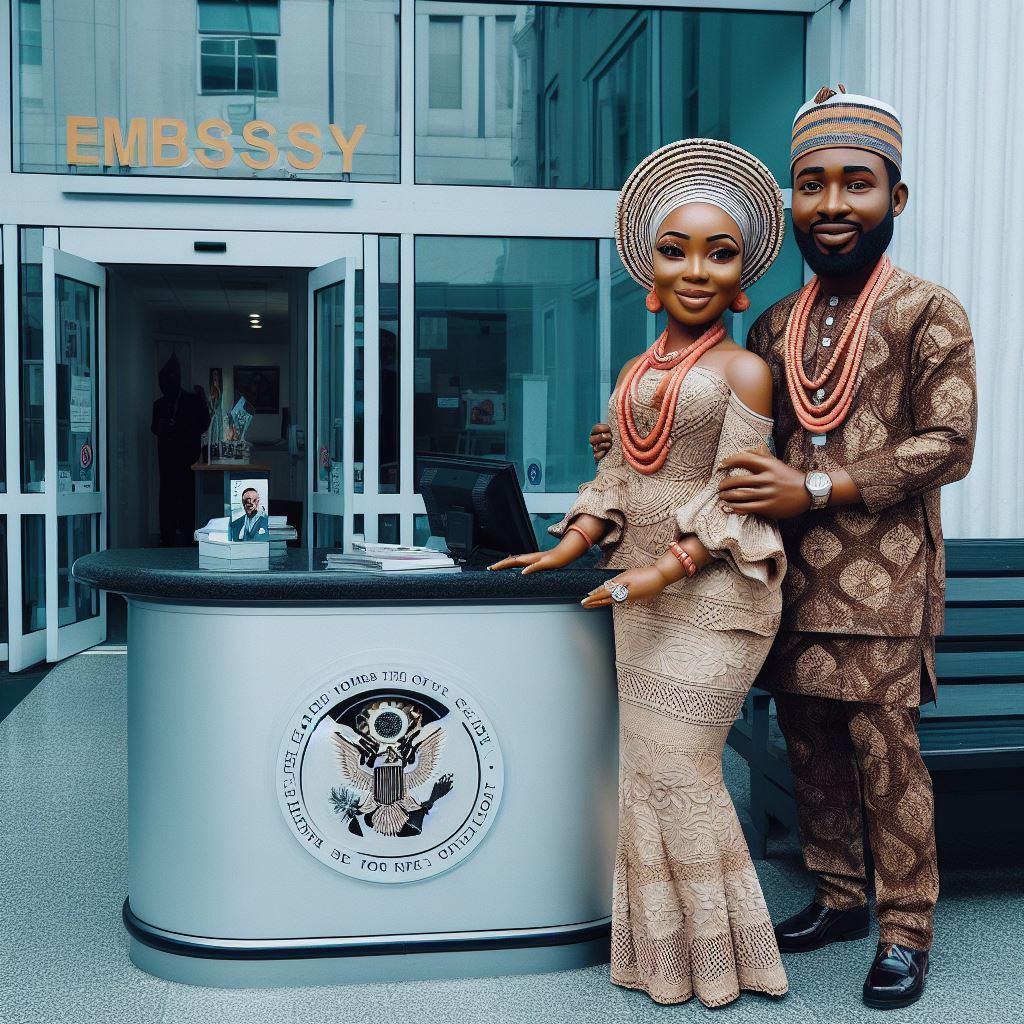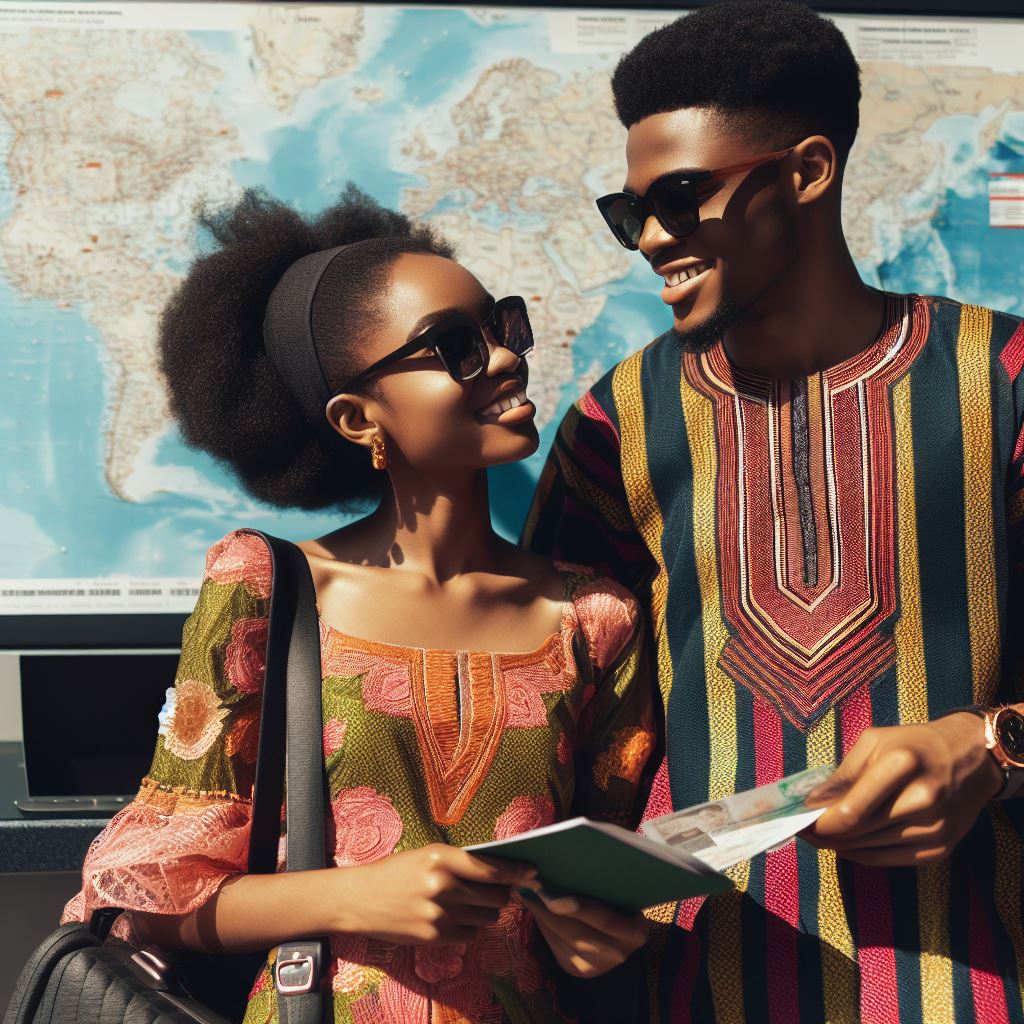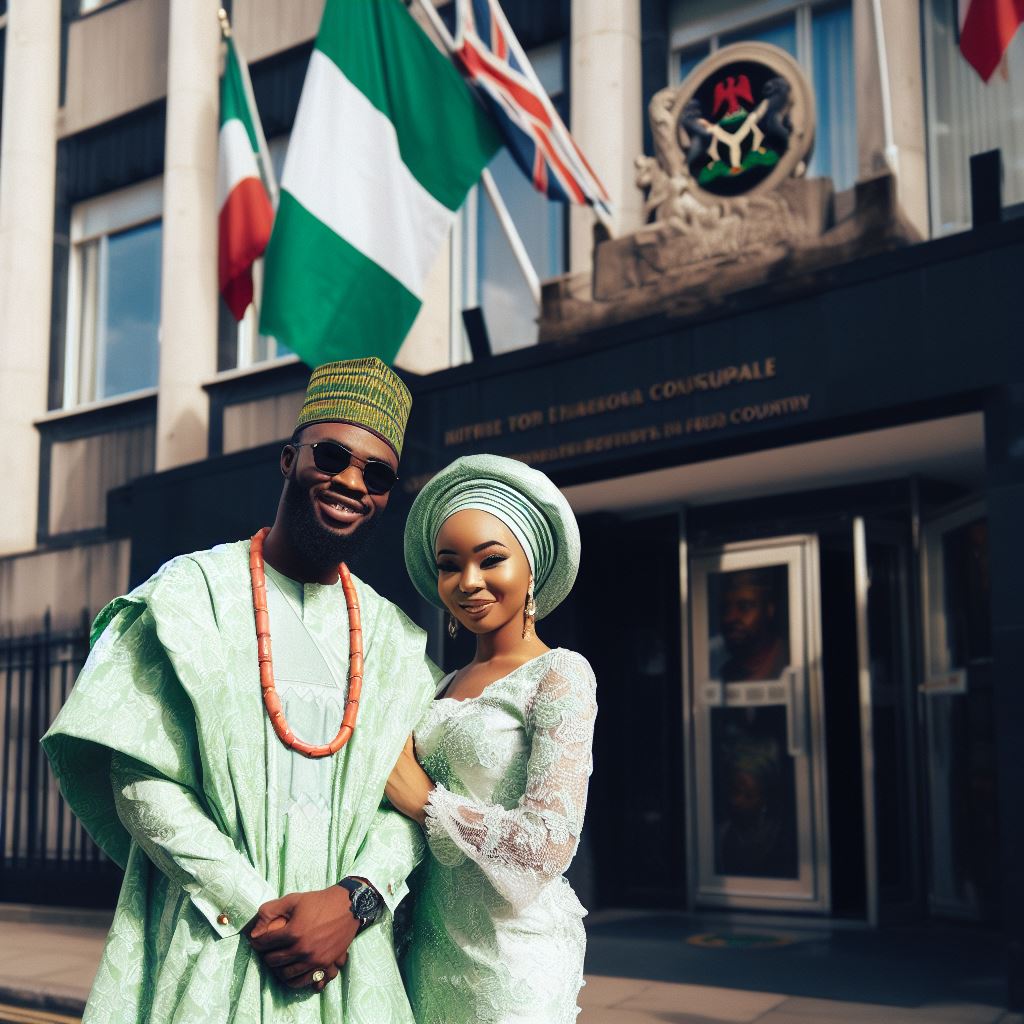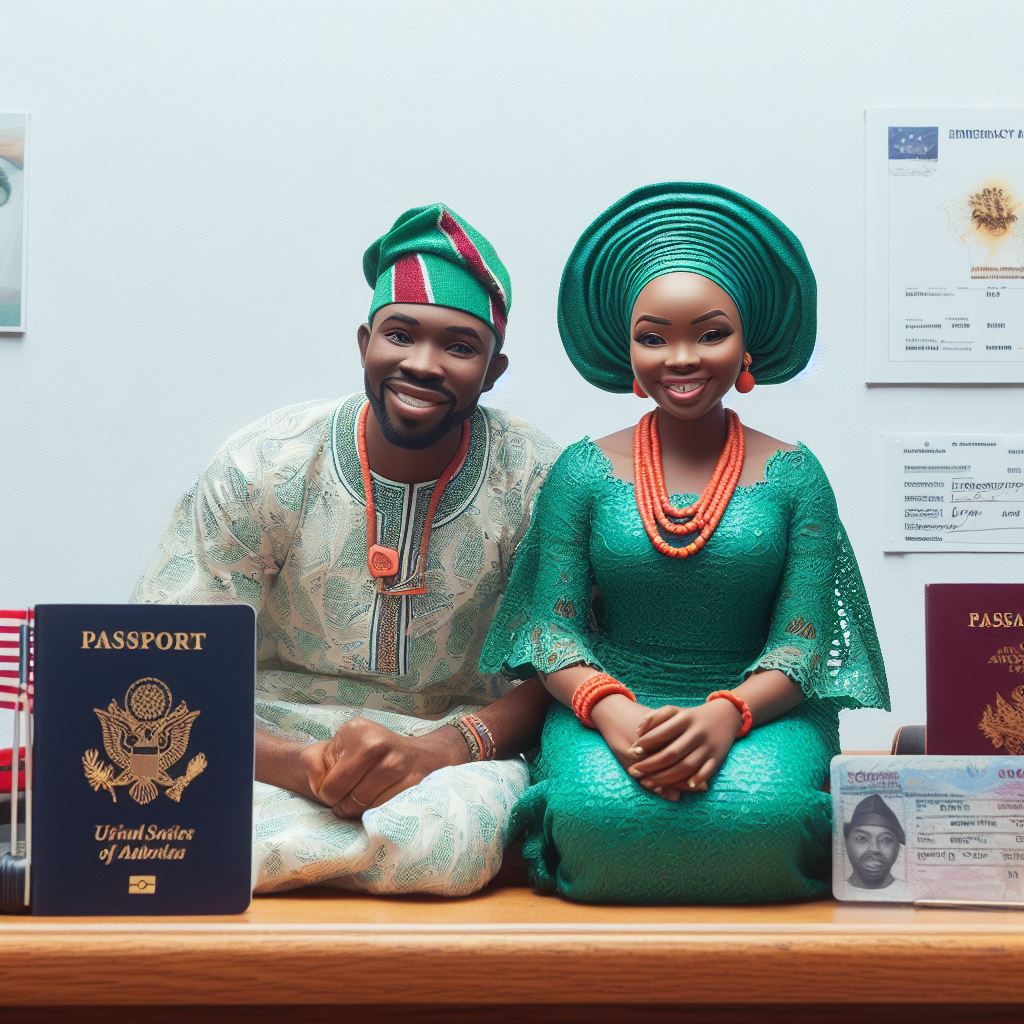Introduction
Did you know that Nigerian marriage and citizenship facts are often misunderstood and surrounded by many myths?
Nigeria, a land of diverse cultures, rich traditions, and vibrant communities, has a complex tapestry of marriage and citizenship norms.
In this intricate web of legalities and social customs, numerous myths and misconceptions have taken root.
In this blog section, we will explore the common misconceptions associated with Nigerian marriage and citizenship.
As we delve into this topic, we will navigate through the legal intricacies and societal norms that govern the union of two individuals.
Moreover, it’s a journey that will take us through the legal frameworks, cultural nuances, and the implications these have on individuals seeking to establish a life together in Nigeria.
In doing so, we hope to provide a comprehensive understanding of the processes involved, debunking prevalent myths along the way.
Whether you’re a native Nigerian, a foreigner looking to marry in Nigeria, or simply curious about the legal and cultural dynamics, this exploration will offer you valuable insights.
So, let’s embark on this enlightening journey, dismantling myths and uncovering the truths about marriage and citizenship in Nigeria.
Together, we’ll gain a deeper appreciation for the intricate tapestry that binds individuals in the pursuit of love and partnership in this diverse nation.
In a nutshell, By debunking these myths, we hope to provide accurate information about Nigerian marriage and citizenship, promoting a clearer understanding of the subject.
Read: Requirements for Obtaining Citizenship through Marriage
Overview of Nigerian Marriage
In this section, we will explore the various aspects of Nigerian marriage, including traditional customs, religious and cultural influences, as well as the importance and significance it holds in Nigerian society.
Traditional Marriage Customs
The traditional marriage customs in Nigeria vary across different ethnic groups.
Each ethnic group has its unique rituals, traditions, and ceremonies when it comes to marriage.
Some common customs include payment of dowry, exchange of gifts, and traditional ceremonies.
Marriage is seen as a union not only between two individuals but also between families and communities.
It is a celebration of joining two families and the establishment of networks and alliances.
Traditional marriage customs often include rituals to seek blessings from ancestors and the community.
Different regions may have specific traditions such as the Igbo “Igba Nkwu” or the Yoruba “Nikkai.”
These customs play a vital role in preserving cultural heritage and passing it on to future generations.
Religious and Cultural Influences
Religion plays a significant role in Nigerian marriages, with Islam and Christianity being the dominant religions.
Islamic weddings adhere to Sharia law and often involve negotiations, contract-signing, and the presence of witnesses.
Christian weddings, on the other hand, follow the customs and traditions of the particular denomination.
Cultural influences can also shape marriage customs, especially in terms of attire, music, dance, and food.
These influences create a unique blend of religious and cultural traditions in Nigerian weddings.
Importance and Significance of Marriage in Nigeria
In Nigerian society, marriage is highly valued and considered a significant milestone in one’s life.
Marriage is seen as a way to continue the family lineage and ensure its survival.
It is also viewed as a means of companionship, emotional support, and procreation.
Marriage provides social status, particularly for women, and allows them to be fully recognized in society.
In some communities, the ability to have children is closely associated with a successful marriage.
Marriages are often extravagant affairs, showcasing the unity, wealth, and social standing of families.
Weddings in Nigeria bring together family, friends, and the wider community to celebrate and bless the union.
Marriage ceremonies are not only a celebration but also an opportunity to strengthen social bonds.
In short, Nigerian marriage customs are diverse, with each ethnic group having unique traditions.
Religion and culture influence these customs, resulting in a blend of practices.
Moreover, Marriage holds immense importance in Nigerian society, symbolizing family unity, social status, and the continuation of lineage.
These ceremonies bring communities together and strengthen social bonds.
Read: The Legal Implications of Marrying for Citizenship
Learn More: Marriage Laws and Regulations Every Nigerian Should Know
Myths and Misconceptions about Nigerian Marriage
There are several prevailing myths and misconceptions about Nigerian marriage that need to be addressed.
These misconceptions often stem from limited understanding and stereotypes.
It is important to debunk these myths and shed light on the reality of Nigerian marriages.
First Myth: Arranged marriages are the only form of marriage in Nigeria
Contrary to popular belief, Nigerian marriages come in different forms.
While arranged marriages exist, there is also a significant prevalence of love marriages.
Love marriages involve individuals choosing their partners based on mutual affection and compatibility.
However, this form of marriage has gained popularity in Nigeria, indicating a diversification in the way Nigerians enter into matrimony.
Second Myth: All Nigerian marriages are polygamous
Historically, polygamy has been a common practice in Nigeria due to cultural and religious reasons.
However, it is incorrect to assume that all Nigerian marriages are polygamous.
In recent years, there has been a noticeable shift towards monogamy.
Many Nigerian couples choose to have single-marriage relationships, reflecting a changing societal attitude towards polygamy.
Furthermore, there are legal implications associated with polygamous marriages in Nigeria.
Issues concerning inheritance, property rights, and social dynamics often arise within polygamous marriages, highlighting the complexities and challenges faced by those involved.
Third Myth: Nigerian women have no power in their marriages
The misconception that Nigerian women have no power in their marriages is far from the truth.
Nigerian women play significant roles and have influence within their marital relationships.
Over the years, education and career opportunities have empowered Nigerian women, granting them more say in decision-making processes.
Moreover, This empowerment has positively impacted the dynamics within Nigerian marriages, allowing for more equality and mutual respect.
Fourth Myth: Nigerian marriages are always arranged by parents
While parents do play a role in influencing marriage decisions in Nigeria, it is incorrect to assume that they solely arrange marriages.
Nigerian individuals have agency in choosing their life partners, and various factors influence their decisions.
These factors include personal preferences, cultural compatibility, educational background, financial stability, and social considerations.
It is essential to recognize that Nigerian marriages are not solely determined by parental arrangements.
In fact, Nigerian marriages encompass a diverse range of types and dynamics.
Arranged marriages are not the only form of matrimony, as love marriages also play a significant role in Nigerian society.
However, not all Nigerian marriages are polygamous, with a growing trend towards monogamy.
Nigerian women have a strong presence and influence in their marriages, thanks to increasing education and career opportunities.
Finally, while parents may have a role in marriage decisions, their involvement does not negate individual agency and various factors that influence marriage choices.
By busting these myths and misconceptions, a more accurate and nuanced understanding of Nigerian marriages can be fostered.
Read: Marriage to a Nigerian: Steps to Secure Citizenship
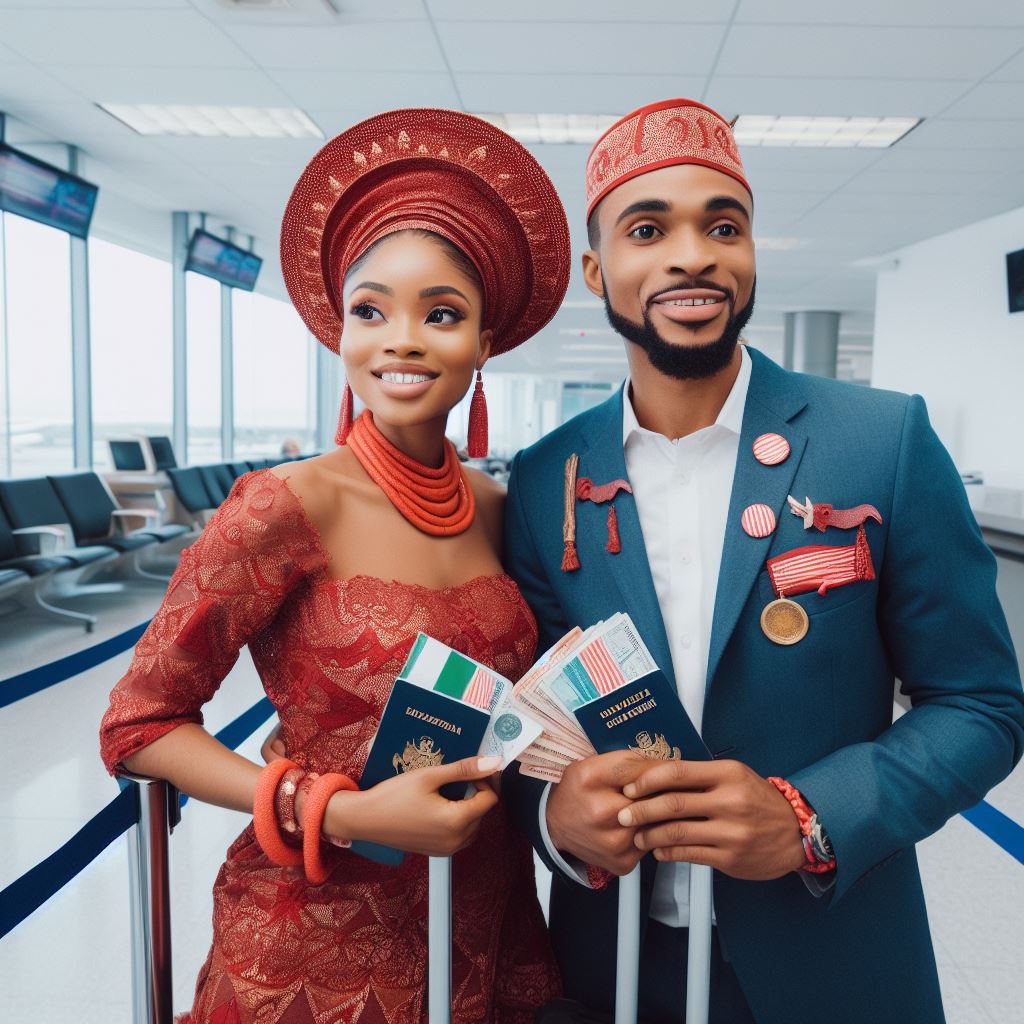
Nigerian Marriage and Citizenship
Nigerian citizenship laws
- Criteria for acquiring Nigerian citizenship should be clearly explained.
- Marriages involving Nigerian citizens may have implications on citizenship status.
Marrying a Nigerian citizen
- Requirements and procedures for marrying a Nigerian citizen must be followed.
- Documentation and legal processes are necessary for a successful marriage.
Citizenship benefits and challenges for foreign spouses
- Acquiring Nigerian citizenship through marriage has various benefits for foreign spouses.
- Foreign spouses may face potential challenges while obtaining Nigerian citizenship.
Case studies/examples of successful marriages and citizenship processes
Case studies highlighting successful marriages and citizenship processes can provide valuable insights.
Read: The Process of Applying for Nigerian Citizenship by Marriage
Conclusion
This blog section has debunked common myths surrounding Nigerian marriage and citizenship.
Firstly, the myth that Nigerian marriage is solely polygamous has been disproven.
Secondly, the idea that Nigerian citizenship can be acquired through marriage alone is false.
Lastly, the misconception that Nigerian marriages are arranged without the consent of the couple has been debunked.
It is important to dispel these myths to promote a more accurate understanding of Nigerian culture and customs.
Embracing the richness and diversity of Nigerian marriages and citizenship is essential for fostering cultural exchange and appreciation.
By debunking these myths, we can break down stereotypes and promote inclusivity and understanding among people from different backgrounds.
Let us celebrate the beauty and complexity of Nigerian marriage and citizenship, grounded in love, consent, and diverse traditions.

